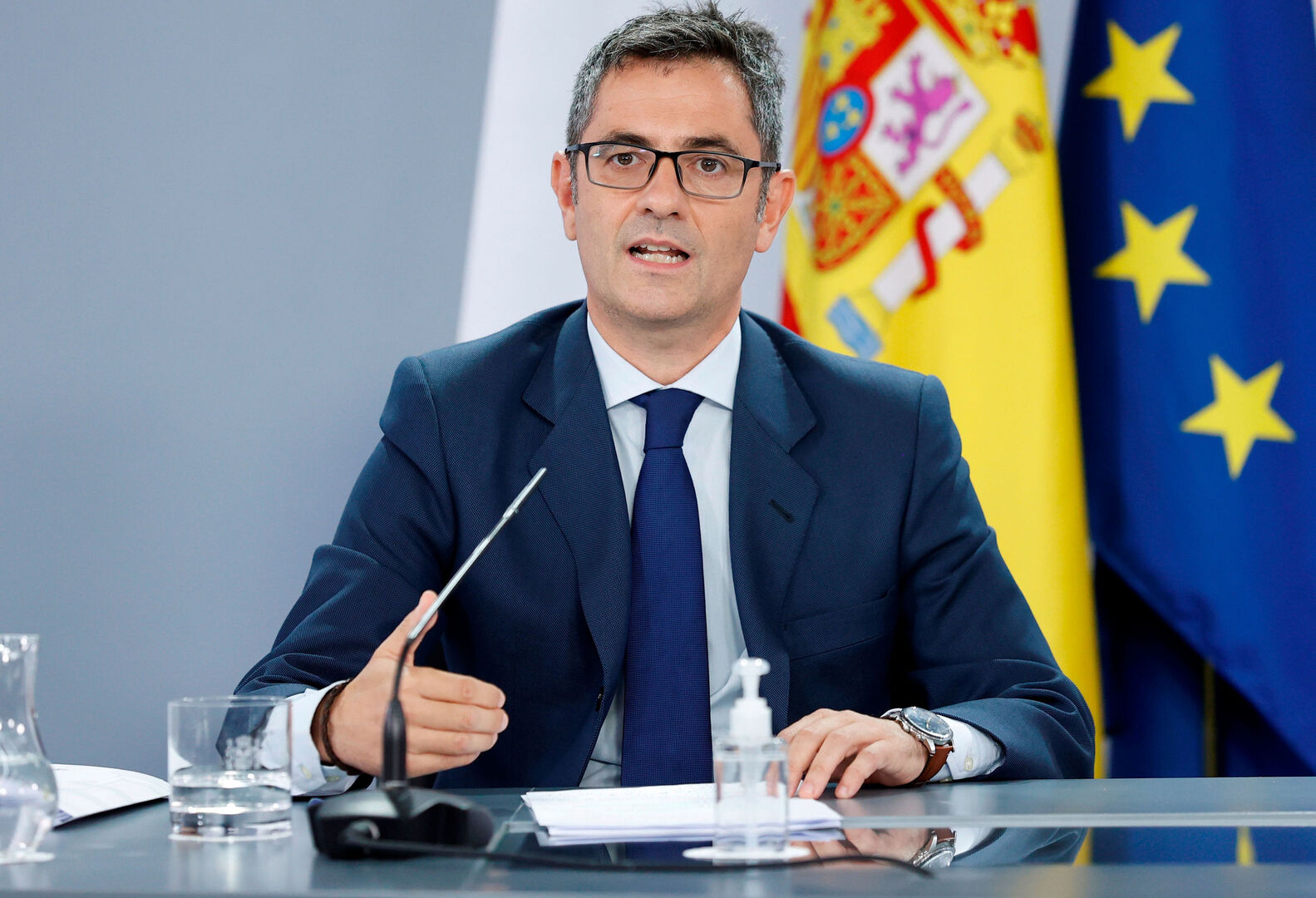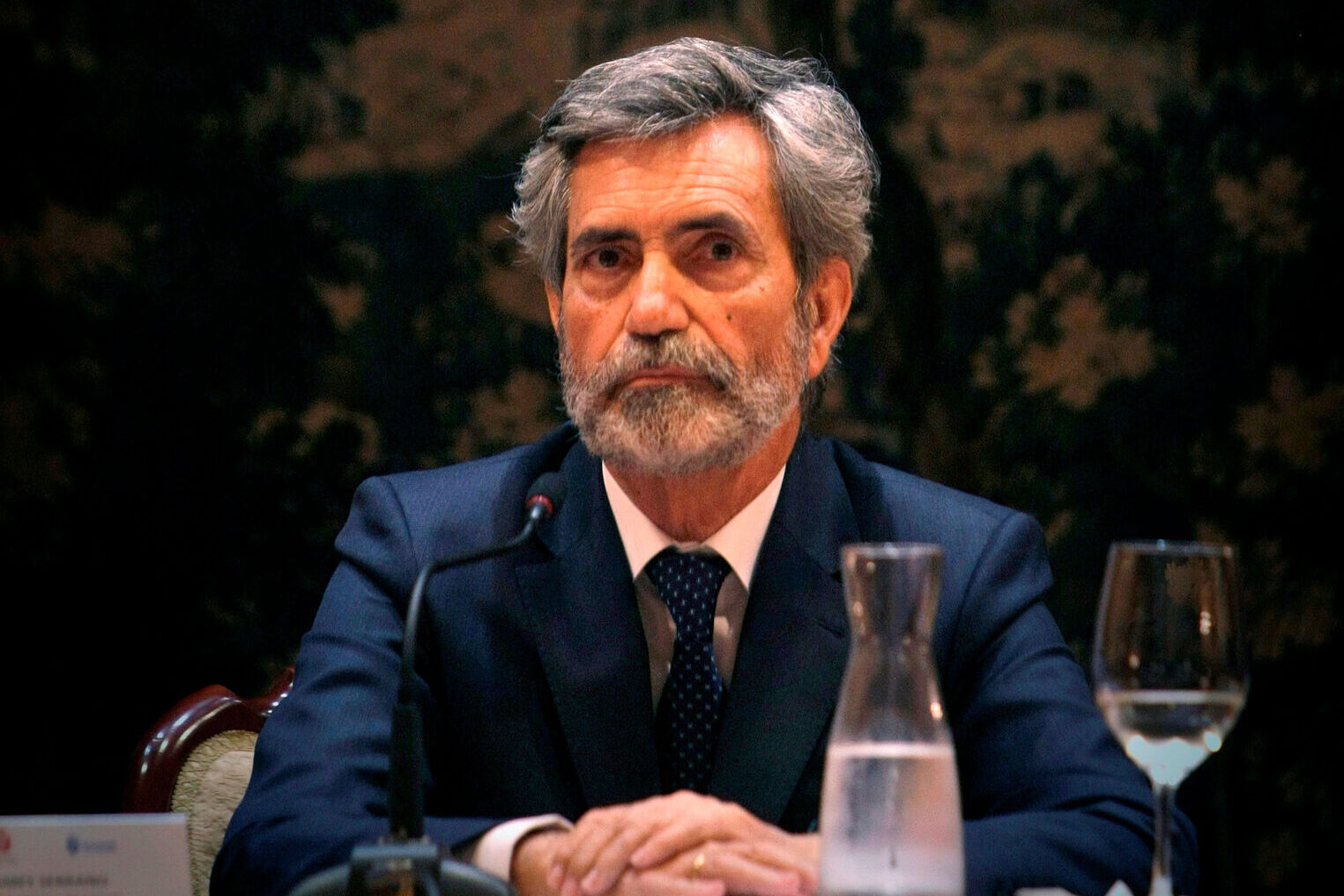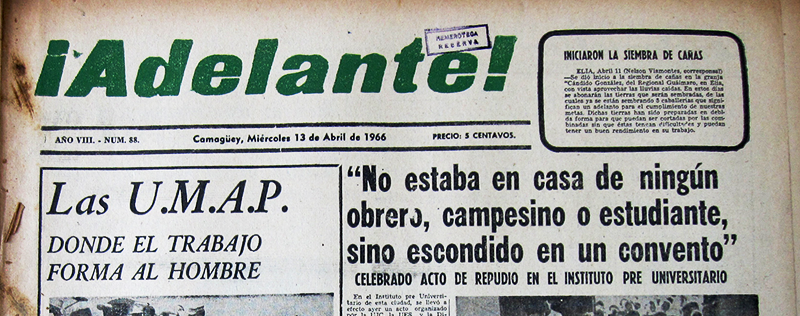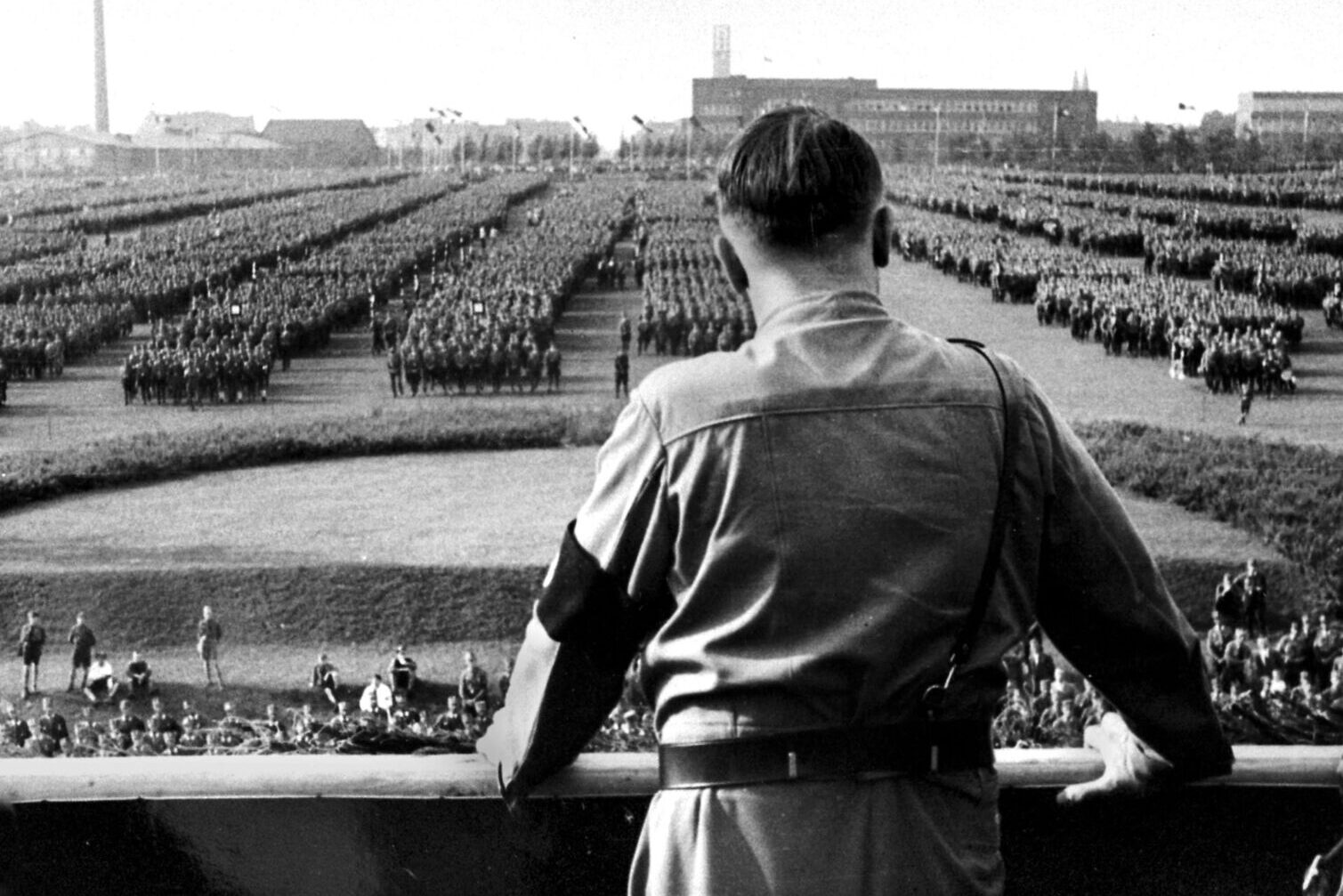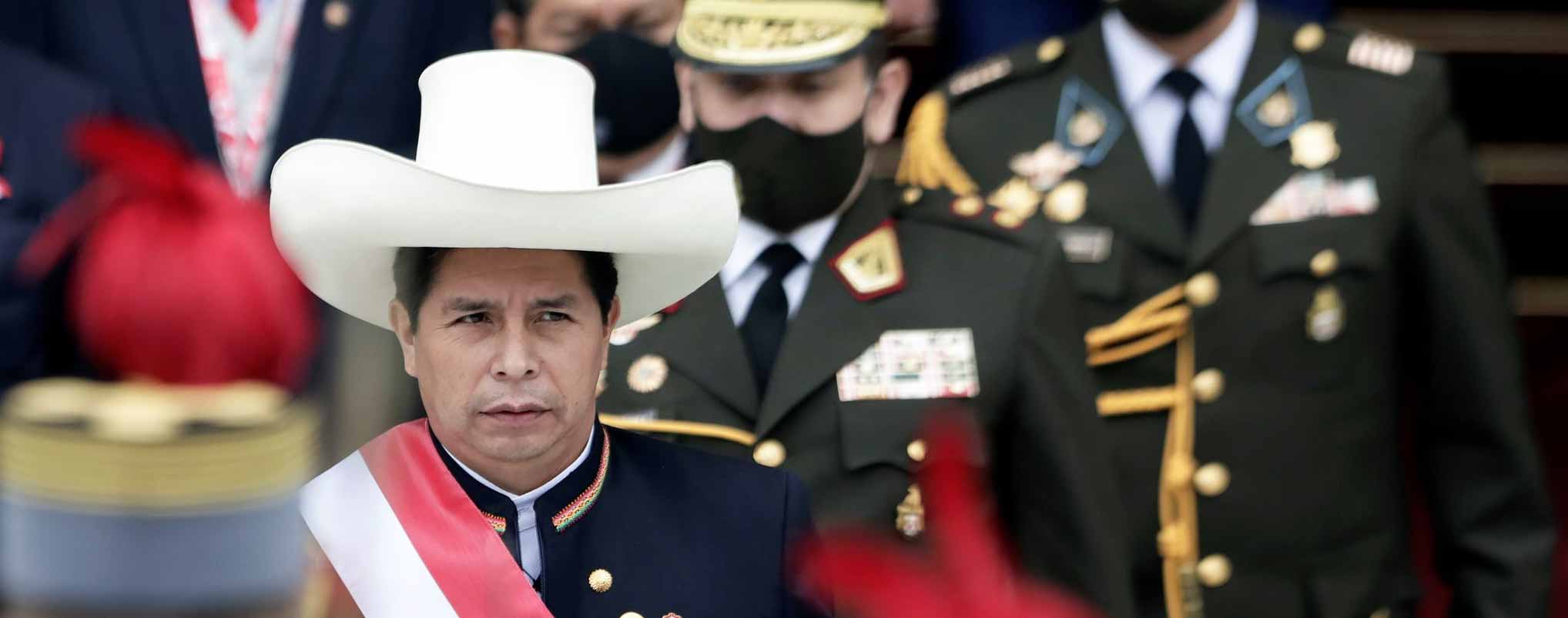Source:Libertad Digital
The flamboyant new strongman of the Government makes it very clear that the PSOE has no intention of relinquishing control over the judiciary.
The Minister of the Presidency, Relations with the Courts and Democratic Memory, Félix Bolaños, on Thursday flatly rejected the condition now being demanded by the PP to renew the General Council of the Judiciary (CGPJ), which consists of reforming the law so that some of the members of this body are elected by the judges themselves.
As Bolaños explained in an interview on Cadena Ser, reported by Europa Press, this proposal has no place because, in a State of law and a “full democracy” such as Spain’s, “neither the judges can elect the judges, nor the politicians can elect the politicians”, he said in a phrase that is surprising to say the least, given that on the one hand the independence of the powers is a basic requirement of democracy and, on the other, in today’s Spain the politicians not only elect the politicians but also the judges.
“We are all elected by the citizens because they are branches of the state. They all derive from the free vote of 47 million citizens”, argued the minister responsible for negotiating with the PP on this issue, after pointing out that “there is no other way” than to renew the CGPJ by means of an agreement between the PSOE and the main opposition party.
PP to blame
In this sense, he defended the fact that the Constitution obliges the renewal of the judges’ governing body every five years, and recalled that the current system is the result of a State Pact that was reached in 2001 under the mandate of a PP Executive with an absolute majority, which on the other hand is strictly true.
For this reason, he pointed out that the condition that the leader of the Popular Party has now put forward is nothing more than an excuse, and warned that what he cannot do is refuse to comply with the law by saying that “he doesn’t like it”. “If the argument is valid, imagine where we are going,” he said.
“Has the PP’s opinion on the model changed? Well, we cannot wait for the will or the decision of the last quarter of an hour. We have to comply with the law and the Constitution, and the main opposition party that aspires to govern Spain has to have a minimum sense of State”, he demanded.
“Compartmentalisation between the powers”
Furthermore, he has defended that the proposal put forward by the PP for judges to elect their representatives on the CGPJ does not fit in with a State of law, because it is not possible to “establish compartments between the powers”. “All of them must have a democratic basis”, he stressed.
“The democratic basis is ultimately that the final decision, in this case agreed between the two majority parliamentary groups in the House, must be a decision that is in line with the Constitution, and that is aimed at ensuring that the judiciary has a democratic basis“, he said, insisting that it is Parliament, that is, the “legitimate representatives of the citizens”, who “have to choose the three powers”.
“The CGPJ is a governing body of judges, but it does not decide things that only affect judges, but all citizens. That is why the democratic basis is absolutely essential. I want judges, members of parliament and, in short, the executive power to be decided by all citizens”, he concluded.
Share this article
On This Day
- 1552 Battle of Bicocca.
- 1565 Miguel López de Legazpi founds Cebu as Villa de San Miguel.
- 1806 María Cristina de Borbón Dos Sicilias was born.
History of Spain
26 August 2020
27 January 2021
Communism: Now and Then
23 December 2022
28 July 2021
